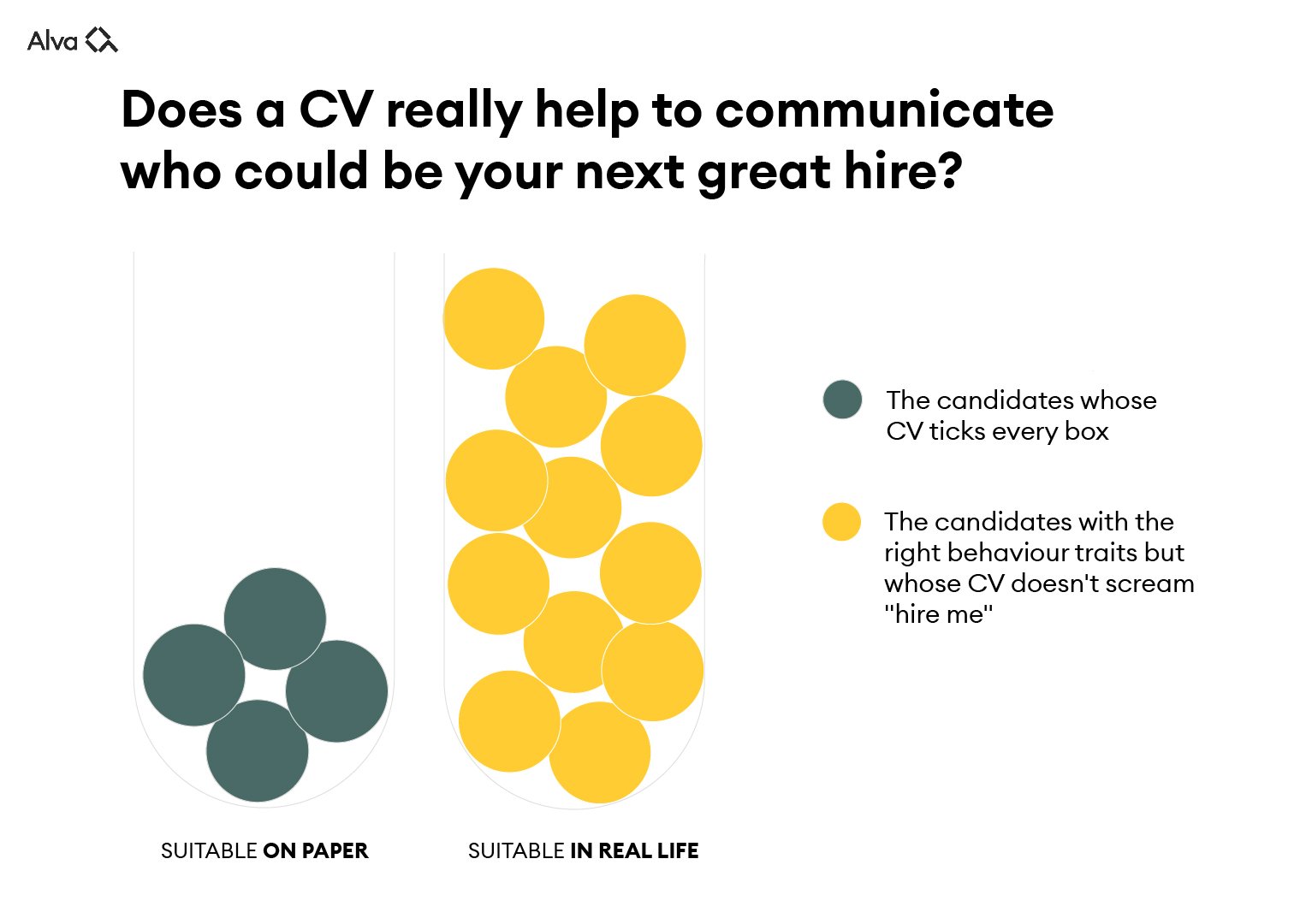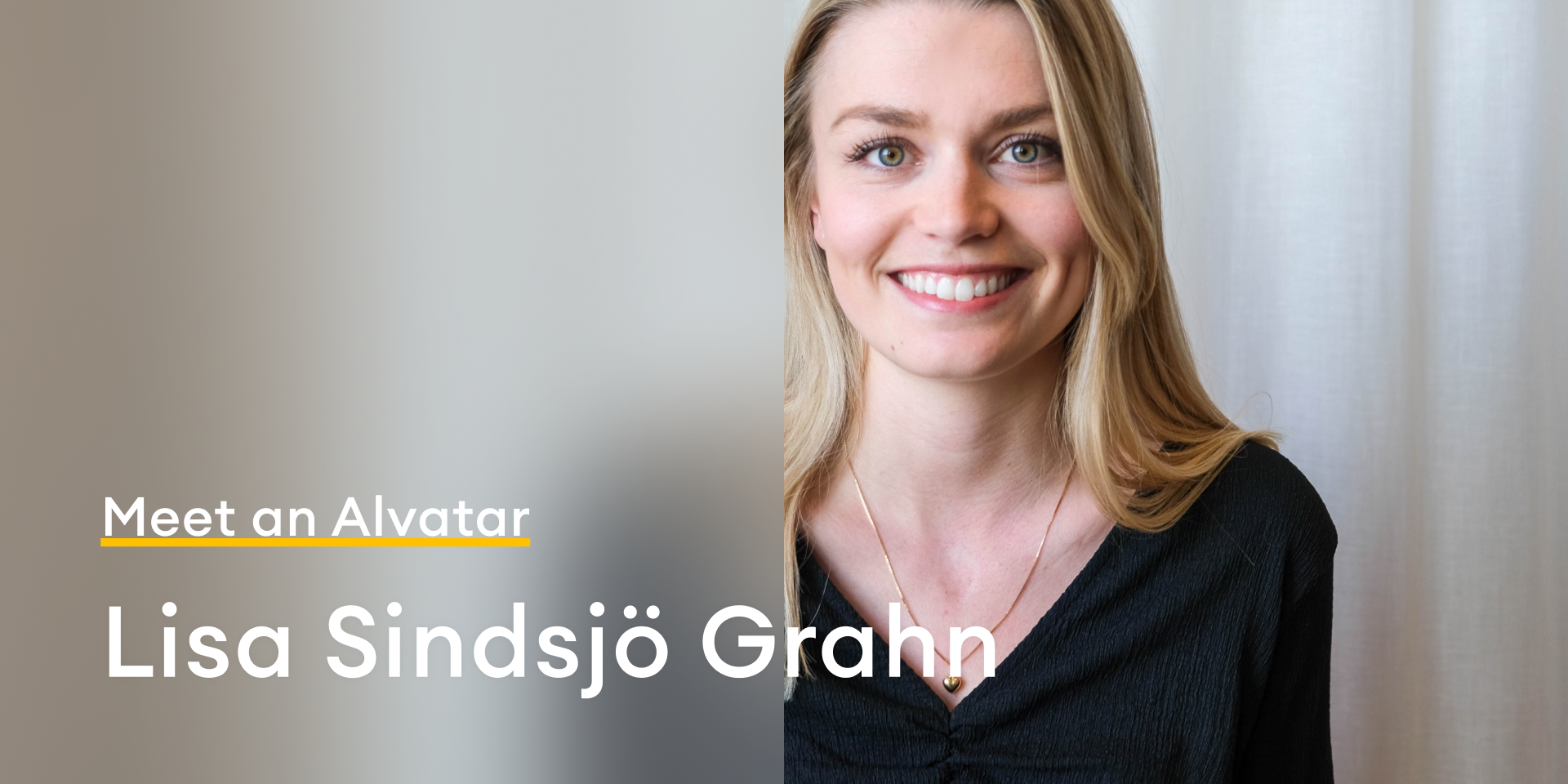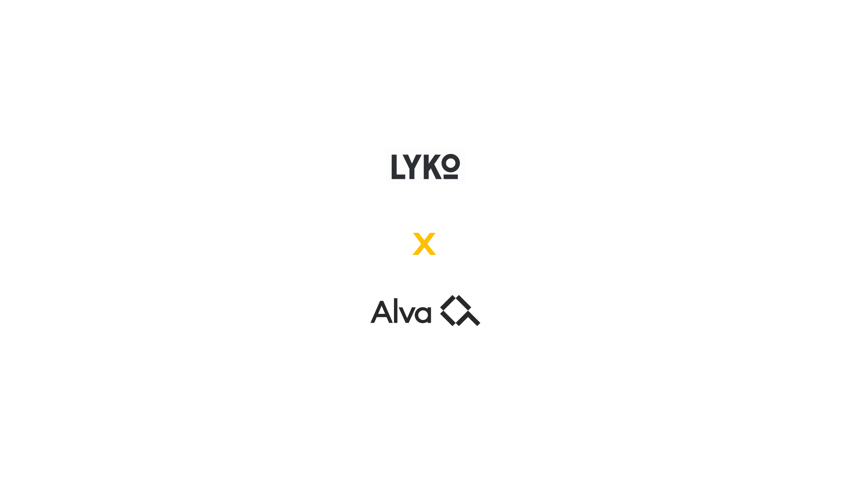What brought you to Alva, Lisa?
First, Alva has the best product! I've had my eyes on Alva for some time, both as a user, but also the people I met from the team – Sofia Palmelius Kolga, Sofie Falck, Kajsa Asplund, Anna Brodin… – have been really nice. So I thought to myself, "it’s a great product, a great workplace ... why not?".
How did you find your calling as a Talent Acquisition Specialist?
I have, all my life, liked people, and I like getting to know people and understanding their purpose – who are they and what do they want to do. And then at the same time, seeing if they match the company's interest, that's something that really excites me. The fact that the talent pool out there is so competitive now, it's important that I'm constantly on my toes and being an effective communicator. I love being a part of the employee's journey, as well as the challenge and thrill of finding the right people, getting them onboarded in a smooth way, and making sure they contribute to the company's continued success.
What is the nature of Talent Acquisition currently, with so much competition for talent and companies looking to scale quickly?
Well, you need to be smart (as a recruiter), especially in times like The Great Resignation. You can't just sit around and wait and debate whether you should continue with a candidate. You don’t have that time. It's even more important nowadays that every step you have in the recruitment process makes a difference. It's up to me to make sure we have a good recruitment strategy and that through each stage of the process there are no question marks regarding the candidate.
In a perfect world, we'd like to meet with job seekers multiple times and invite them to sit down to work with us, but you have to be smart with your time as an organisation.
How would you describe the landscape now as a recruiter?
Good candidates have so many options now – and that goes for keeping talent as well as recruiting them to the company. Here in Stockholm, and especially in the tech sector, companies are pretty desperate. They're willing to do quite a lot to get talent onboard, especially regarding compensation and flexibility. It goes back to what you offer and your employer brand.
To put together the best total package for candidates, you have to know who you're going after and whether that would be something they're interested in.
Are recruiters really becoming more in-demand, even more than engineers?
I can confirm! It's flattering, of course, now to be a recruiter and work in an in-demand profession. With so many options, it was important for me to find the organisation that provided the best working conditions and professional fulfilment.
For me to recruit candidates to a company, it also has to be a place where I personally want to be. I think the downside to this trend with recruiting is that we might end up measuring recruiters on the wrong metrics (quantity), and not on what matters, such as bringing in quality people to an organisation. It can't just be about filling a role but finding the right fit for the role.
What does it take to bring in the right person for your organisation?
It's important to do your homework as a hiring team - including both the manager and HR. Don't just think about who you're looking for, but also why you're on the lookout for them. That helps you better identify if it's a question of hard skills that you need, or if you should also consider someone who can add to the company culture.
Building a requirement profile at the early stage of the recruitment process is key to getting the right fit, and also to get the candidate to thrive. I think we only get those answers if we ask ourselves the necessary questions before we start recruiting.
It's just too common nowadays that one gets stuck in years of experience or has done the same things somewhere else because you're scared that they won't ramp into the role. Of course, companies want someone to be an immediate fit, but we need to zoom out a bit and see how (the employee) is going to progress during their career at the company.
What is the biggest mistake that companies make with recruiting?
If the purpose of why they're being hired is not clear, and if they don't get the proper chance to do their best work, then the employee is going to be unhappy. You have to consider all the aspects: how the employee will contribute to the culture, how they'll go about their daily work, and how they'll find their place in the organisation. Imagine bringing someone into a busy team that doesn't have time to onboard the new employee. Soon they'll start questioning why they were even recruited in the first place, and I believe you can prevent that when you have a clear purpose for the hire.
How does Alva best help recruiters?
Alva gives the recruiter clarity about the candidate, and so by using assessments early you avoid surprises that can come later in a traditional interview process. And you get a significantly bigger benefit when you add in structured interviews. If we as recruiters can identify early on skills or personality traits that are important to us, on top of the interview questions, merging both of those into a hiring tool like Alva, then you get the best of both worlds.

Let's say I want to find someone who is a goal-driven person. The test provides us with information about whether the applicant has that particular trait. But we don't know anything about how that applies to real life and the candidate's previous experience, so we need to ask them questions about it. Then we draw conclusions from different data points, add them together, which provides us with a good combination of both.
The boring part? It's way less time consuming (to use Alva). It helps me to optimise my time with the screening work, but it's also a hiring tool that reveals the important traits you wanted to highlight in the recruitment process. There's also the important aspect of minimising risk; the earlier you do candidate assessments in the process, the better.
In the end, as a recruiter, Alva gives me a data point that I can trust.
It gives me room to get to know the candidate so much better than if I had just read their CV. It adds proven scientific value, and it helps me predict how they'll perform. No method is perfect, and that is important to state. Assessments don't give a perfect picture of a candidate, but they help considerably to minimise risk, so I see no reason not to use them in a modern recruitment process. Even for me, as an experienced recruiter, Alva provides me with a sense of validity about my selections.
What does it mean to minimise risk in the recruitment process?
Often when companies make a mistake in recruiting, they bring in someone who isn't as good as they thought. It could also be that they were a poor fit on their teams. Alva helps companies by providing a clearer picture of the candidate, and the tests help us to identify the candidates who are going to ramp into their roles quicker, and progress through their onboarding. That's because we can screen for how easily a candidate will adapt to new situations and their ability to learn new things.
But sometimes Alva points out that a candidate might need more time, and that's not necessarily grounds for rejecting them. It's just context, and Alva helps us set the right expectations. I mean, look at a normal distribution of the population; some need more time, and some can ramp up quickly.
Companies who partner with Alva can then give those candidates the right prerequisites and expectations to start their journeys. There are no rights and wrongs regarding personality. It's about (us as recruiters) knowing more about a candidate.
You've worked with other candidate assessment vendors before. How does Alva stand out?
I’ve worked with three different test providers in my career. A previous supplier I used as a recruiter would leave candidates in the dark about their results. Often the candidates would ask me, "How did I do?" or "Did I have a good result?", and I could only empathise with them. With Alva, it's full transparency and it feels great to tell the candidate, "you're seeing the same things we (the recruiters) are seeing. You can fully trust that your report is the same report I have.”Other suppliers will give a short two-page report to the candidate and then keep a 30-page version for themselves to draw conclusions from the candidate.
The second factor is Alva's ease of use. It's so simple to send out the assessments, to follow up on the assessments, and to get an overview on who's done them or not. All the administrative work, basically. Then you have the integrations into our Applicant Tracking System, and that was a key point for us when we decided (in my previous role) to go with Alva. I save a lot of time using Alva, but that's especially valuable as well for the candidate. It takes a short amount of time for them to do an Alva assessment compared to the other major providers.
Previously, with another vendor, we'd often ask a candidate to spend 60-90 minutes on assessments – and then we wouldn't provide them with the results afterwards. They got a short summary, and that's it.
Another point worth highlighting is that Alva takes all my subjectivity out of the equation. The analysis of the results is already done, so I'm not left to my own interpretation of the results.
What do you say to those who are sceptical about using candidate assessments?
I'd say they help us highlight the things that are important in a recruitment process. When we do a requirement profile with hiring managers, we sketch out what we profile we're looking for. Then, if those things seem to be in line with what we need, that's great. But if those personality traits are slightly under what we're looking for, that doesn't mean rejection, because you have to look at the full picture.
Personalities are very complex, and we as recruiters (using Alva) know more by using the tests than not using the tests. That's always my point when people are skeptical about using tests and say "you don't actually know how they'll perform in the long run" and my response is "yeah, we do know, actually!" That's all based on research and we can see tendencies.
We don't get to know the candidate to the fullest, but we understand more about who we're hiring. And that's the important part ... what to expect from the person.
What advice would you give a Talent Acquisition Specialist just starting out?
That it's a complex field, and you need to respect that recruitment is really hard. It's not something you do with your left hand while doing other tasks – this is work that requires full focus. Because of that, I think it's even more reasonable to use a scientifically-proven method. In Swedish we often say it's important to be "prestige-less." I'm not a perfect recruiter and I'll never be a perfect recruiter, so why not trust the methods that we know, based on research, could help us be better at our jobs?







